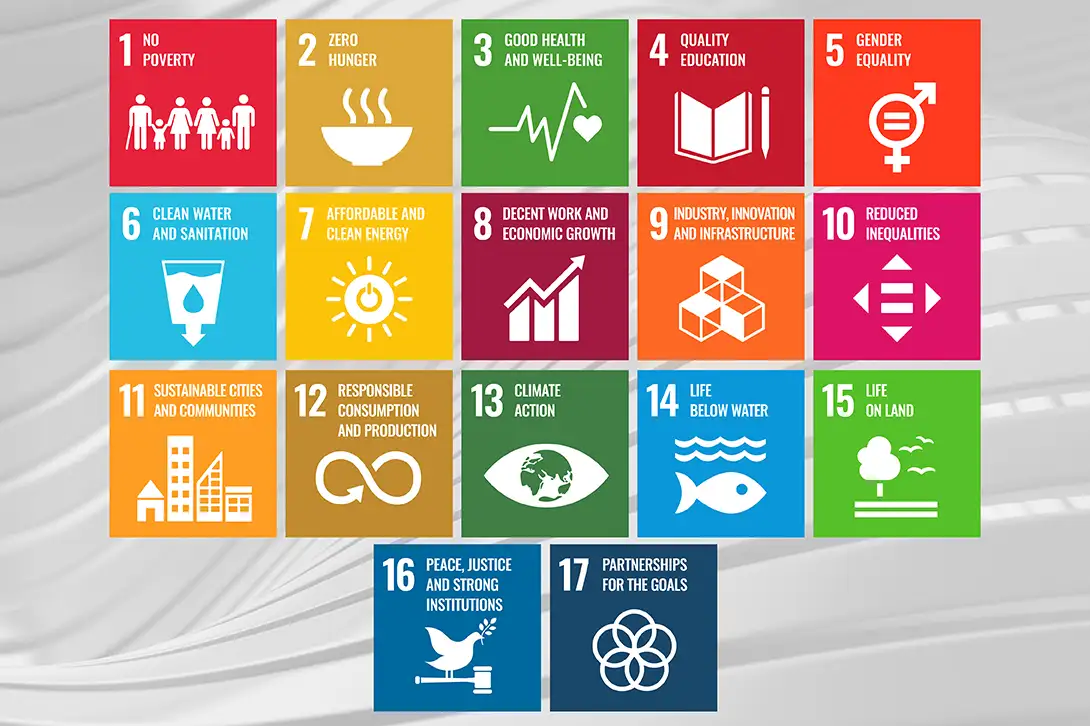There are 17 of them and they promise to bring an end to poverty, to protect the planet and to guarantee that in 2030 all people may enjoy peace and prosperity. These are the Sustainable Development Goals (SDGs) adopted by the United Nations Organisation (UN) in 2015 and cooperatives play a leading role in them.
The SDGs are composed, as well as acknowledging that the action in an area will affect the results in other areas and that the development must balance social, economic and environmental sustainability. The main aim of these goals lies in bringing an end to poverty, famine, AIDS and discrimination against women and girls.
In order to do this, the global efforts must be fully invested in these objectives. Creativity, technology and financial resources from society as a whole are necessary to reach the SDGs in all the contexts.

What are the SDGs?
The UN’s sustainable goals complement themselves and attempt to improve the world and correct the inequalities. They are the following:
- SDG 1 – No poverty: End poverty in all its forms everywhere continues to be one of the main challenges facing humanity. This first goal is proposed to at least halve the proportion of men, women and children of all ages who live in poverty in 2030.
- SDG 2 – Zero hunger: This goal means an end to all forms of malnutrition, even reaching the international targets regarding stunting of growth and emaciation in children under the age of 5 years, and tackling the nutritional requirements for teenagers, pregnant and nursing women and the elderly.
- SDG 3 – Good health and well-being: Under this objective, the idea is to reduce the world maternal mortality rate and to bring an end to the avoidable deaths of newborn babies and children, in addition to eradicating epidemics such as AIDs, tuberculosis, malaria or neglected tropical diseases.
- SDG 4 – Quality education: The goal, by 2030, is for all children to have access to a pre-primary development, care and education and they should be able to complete their primary and secondary education with access to a free, equitable and quality model.
- SDG 5 –Gender equality: Bring an end to all forms of discrimination against all the women and girls in the world.
- SDG 6 – Clean water and sanitation: Ensure universal and equitable access to drinking water at a price that is affordable for all.
- SDG 7 – Affordable and clean energy: Ensure access to affordable, reliable, sustainable and modern energy for all and considerably increase the proportion of renewable energy from amongst all energy sources.
- SDG 8 – Decent work and economic growth: Maintain the economic growth per capita in accordance with the national circumstances and, specifically, the GDP must have a minimum annual growth of 7% in least developed countries.
- SDG 9 – Industry, innovation and infrastructure: Develop reliable, resilient, quality infrastructures, including regional and cross-border infrastructures, to support economic development and human well-being, with emphasis on affordable, equitable access for all.
- SDG 10 – Reduced inequality: Empower and promote social, economic and political inclusion of all, regardless of their age, sex, disability, race, ethnicity, origin, religion or economic condition or any other type of difference.
- SDG 11 – Sustainable cities and communities: Ensure access to basic, adequate, safe and affordable housing and services and improve the urban slums.
- SDG 12 – Responsible consumption and production: Ensure sustainable management and efficient use of the natural resources.
- SDG 13 – Climate action: Strengthen the resilience and capacity to adapt to climate-related risks and natural disasters in all countries.
- SDG 14 – Life below water: Prevent and significantly reduce marine pollution of all types; specifically, pollution produced by activities carried out on land, including marine debris and nutrient pollution.
- SDG 15 – Life on land: End desertification, restore degraded soil and land, including land affected by desertification, drought and floods, and attempt to achieve a world with neutral soil degradation.
- SDG 16 – Peace, justice and strong institutions: Significantly reduce all forms of violence and the corresponding mortality rates around the world. End child abuse, exploitation trafficking and all forms of violence and torture.
- SDG 17 – Partnerships for the goals: The goals may only be achieved with a categorical commitment in favour of world alliances and cooperation.
Cooperatives and SDGs
To reach these targets, cooperatives are the UN’s best allies. These organisations define their threefold role as economic agents, social groups and democratic organisations; therefore their goals are completely in line with the aforementioned Sustainable Development Goals (SDGs). In fact, it is expected that the holding of the International Year of Cooperatives in 2025 will give more impetus for reaching the SDGs, marked out for 2030.
Often, cooperatives are linked to vulnerable social groups and, although they maintain an approach and relations that are international, they are deeply connected to the local community. Bringing a halt to exclusion, inequality and non-sustainable practices are the essential pillars both for the cooperatives and for the UN.
Cooperatives represent a key business model for reaching a more inclusive, resilient economy
According to a report by the UN, cooperatives represent a key business model for reaching a more inclusive and resilient economy, owing to their capacity to meet local needs in a sustainable way.
Furthermore, companies that operate under an exclusively capitalist logic may find it much more difficult to follow the UN’s guidelines and to carry out significant changes in their business models.
Whilst capitalist companies often give priority to maximising profits, cooperatives reinvest their earnings for the benefit of their members and for the community, allowing a more sustainable and fair development.



